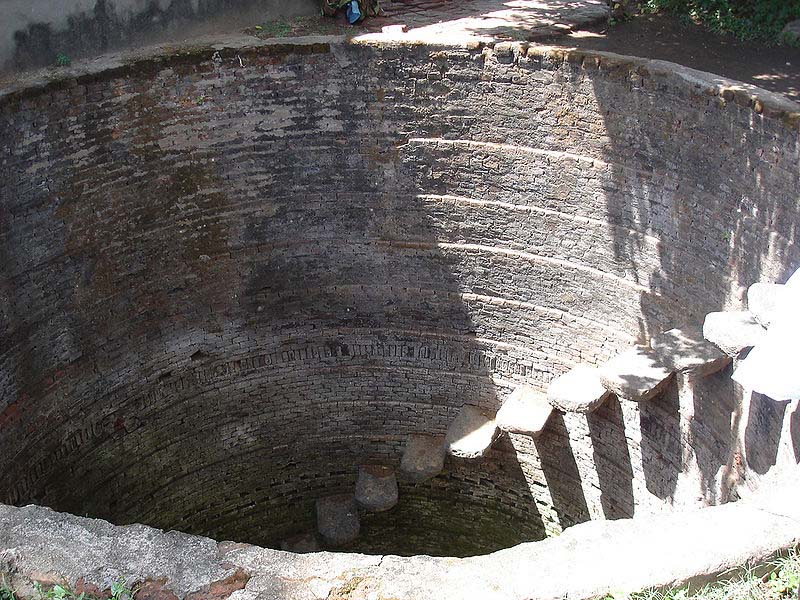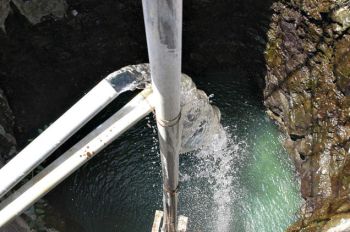/regions/political
Political
Annual Jamnalal Bajaj Foundation awards in four different categories
Posted on 17 Jun, 2011 12:00 PMEstablished in 1977 in the memory of Jamnalal Bajaj, a close associate of Mahatma Gandhi, the Foundation strives to serve the ideals to which Jamnalal Bajaj had dedicated his life and promotes the kind of Gandhian constructive activities in which he himself was deeply involved during his life-time.
NCAS invites applications for Advocacy Internship Programme 2011-12 – Apply by 6th July, 2011
Posted on 17 Jun, 2011 11:54 AMThe National Centre for Advocacy Studies (NCAS) is a social change resource centre working with social action groups, public interest professionals, and people from all over India and the Global South.
Advocacy Internship is a programme that grooms young and dedicated professionals who are committed to social activism. It seeks to cater to the needs of current campaigns for social justice. The internship programme undertakes to enrich the participants with a political perspective, knowledge base and skills required for effective public advocacy.
Apeejay Surrendra Group launches 'Apeejay India Volunteer Awards 2011'
Posted on 17 Jun, 2011 11:43 AMApeejay Surrendra Group in association with i-Volunteer and International Business Leaders Forum, UK (IBLF) has announced the commencement of the Apeejay India Volunteer Awards 2011 (AIVA), an annual national recognition focused on rewarding work of volunteers and volunteer engaging corporate and NGOs. AIVA aims to identify champions in volunteering in India, recognize volunteers and organizations engaged in volunteering, raise awareness around volunteering, celebrate and promote this much needed effort and drive volunteering as a mainstream interest in Indians.
Women at the center of climate friendly approaches to agriculture and water use - A report by the Institute for Agriculture and Trade Policy
Posted on 17 Jun, 2011 10:45 AM The Institute for Agriculture and Trade Policy draws on the experiences of the Tamilnadu Women’s Collective (WC), a state-level federation of women’s groups from 1,500 villages, in the context where communities all around the world are struggling to find ways to cope with changes affecting food and water security because of the phenomenon of climate change.
The report argues that many a times, new food and water security policies at the national and international level tend to be narrow, look at each of these issues in isolation and undermine food and water security strategies adopted by individuals and households from marginal groups. Adaptation strategies to address food security focus almost exclusively on increasing agricultural production, while ignoring health and cultural aspects of the food being produced, and the role of agriculture as a means for rural viability.
Accelerated programmes - What can the water sector learn from the power sector? – An article in EPW by Tushaar Shah
Posted on 16 Jun, 2011 09:11 PMThe Government of India’s 15-year old AIBP has come under much-deserved criticism for all-round non-performance. It was introduced to support states in "last mile" public irrigation projects, that is, projects which are nearly completed but whose full benefits can start flowing only after small, incremental investments are made. Yet, the AIBP has been used mostly for funding new projects.
Independent water regulatory authorities in India - Analysis and interventions - A compendium of analytical work by PRAYAS
Posted on 16 Jun, 2011 08:09 PMThese reforms have led to the establishment of Independent Regulatory Authorities (IRAs) in the water sector through the enactment of laws at the state level.
Guidelines for successful well site selection – A paper in Current Science
Posted on 16 Jun, 2011 07:57 PMGroundwater is a natural replenishable resource. It is an important source for various purposes, including drinking, irrigation and industrial, due to insufficient surface water supply and frequent failure of monsoon. Identification of groundwater zones depends upon many factors such as distribution of rainfall, runoff, grain size of soil, topographic features, type of landform, drainage conditions, lithological characteristics, land use practices, depth to groundwater level and environmental constraints, which are not uniform in any area.

Image courtesy: Wikimedia Commons
Managing shallow aquifers in a city
Posted on 16 Jun, 2011 06:04 PM Good option: The city needs multiple sourcing of water and open wells have the potential to provide up to a third of the requirement
Good option: The city needs multiple sourcing of water and open wells have the potential to provide up to a third of the requirement
Just how a city can be arbitrary with its policy on water management and therefore leading to sub-optimal conditions is made clear by a recent example one came across. Balasubramanian had an old open well dug to a depth of 30 ft. when he first built his house in the early 80s. The well had yielded water for quite some years but then subsequently had gone dry.
Workshop on 'Best practices in sustainable agriculture', NABARD-ACCESS, 28th - 29th July, 2011, Kolkata
Posted on 16 Jun, 2011 06:03 PMOrganizers:
- National Bank for Agriculture and Rural Development (NABARD)
- ACCESS Development Service
Venue: Kolkata
NABARD has undertaken many initiatives for promoting sustainable agriculture. The Regional Offices, CBOs, PIAs have also innovated locally depending on the local requirements. However, this vast knowledge base is not always tapped for sharing and dissemination in a systematic way. Outside NABARD also there are many successful experiments, models on sustainable agriculture practices. One of the mandates of NRMC is to identify such models and facilitate their replication.
A three-day workshop on how to leverage new media technologies for advocacy and strategic communication, CSE, 6th – 8th July, 2011, New Delhi
Posted on 16 Jun, 2011 05:36 PMOrganizer: Anil Agarwal Green college, Centre for Science and Environment (CSE)
Venue: Centre for Science and Environment, 41, Tughlakabad Institutional Area, New Delhi